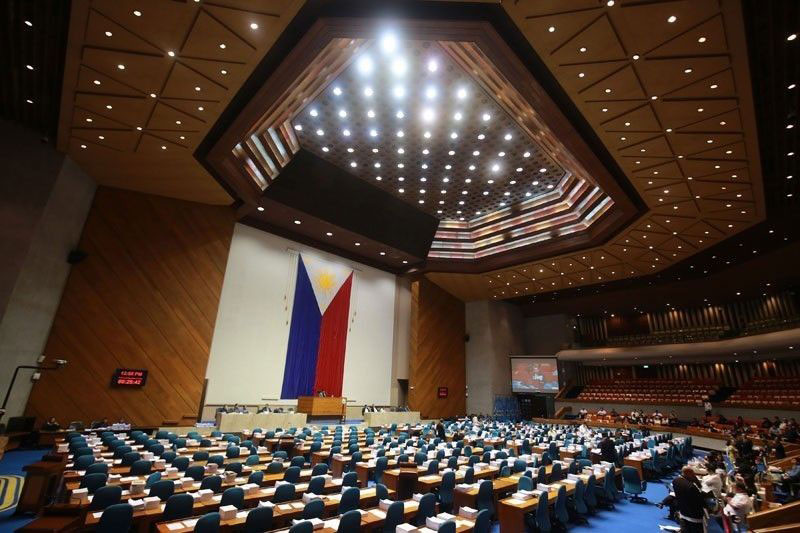
PHILIPPINE lawmakers on Monday refiled a Freedom of Information (FOI) bill that would require government agencies to disclose monthly transactions and require top officials to release their annual statements of assets, liabilities and net worth (SALN).
Deputy Minority Leader and Party-list Rep. Leila M. de Lima said the bill offers Congress a chance to act on long-standing demands for transparency, particularly after President Ferdinand R. Marcos, Jr.’s recent remarks condemning corruption in infrastructure spending.
“It’s about time,” she told reporters in mixed English and Filipino. “We have heard from the President during the State of the Nation Address (SONA), and it came from him that he wants to know what happened to infrastructure projects. This is actually an opportunity.”
Although the 1987 Constitution recognizes the people’s right to access public information, an enabling law is needed for full implementation.
Multiple FOI proposals have been filed since 1992 but failed to pass, primarily due to a lack of legislative urgency. A 2016 executive order by former President Rodrigo R. Duterte established FOI mechanisms for the Executive branch, but not for Congress or the Judiciary.
“Current inconsistencies and lack of mandatory disclosure highlight the need for a legislated FOI policy,” Ms. De Lima, a former senator, said in a statement. “This proposed measure is a powerful weapon against corruption, disinformation and the absence of integrity and accountability in government.”
House Bill No. 2897, authored by Representatives Edgar R. Erice (Caloocan), Adrian Michael A. Amatong (Zamboanga del Norte), Arlene J. Bag-ao (Dinagat Islands), Jaime R. Fresnedi (Muntinlupa), Cielo B. Lagman (Albay), Alfonso V. Umali (Oriental Mindoro) and Ms. De Lima, seeks to “adequately address the vulnerabilities and problems that arise from the lack of transparency and access to information,” according to its explanatory note.
The measure requires all government agencies to make public “all information on official acts, transactions, decisions, as well as government research data used as a basis for policy development.”
Agencies must also publish monthly records on budgets, collections, expenditures, procurement plans, contracts, bidding documents and trade or investment agreements.
Exemptions include documents deemed sensitive to national security or foreign relations, as well as privileged court communications and records from congressional executive sessions.
“The exceptions cannot be invoked to cover up legitimate investigations being conducted by law enforcement agencies or the Legislature involving the commission of a crime, wrongdoing, graft, corruption, or any unlawful activity,” according to the bill.
The proposed law also requires the President, Vice-President, Cabinet members, lawmakers, Supreme Court justices, top military officials and heads of constitutional commissions to submit and publicly disclose their SALNs each year.
Noncompliance may result in administrative sanctions, while officials who intentionally conceal or destroy requested public information could face imprisonment of up to six years and a fine of as much as P1 million.
‘CLAMOR FOR TRANSPARENCY’Meanwhile, the Senate will prioritize a more transparent and accessible budget process amid mounting public calls for accountability, said Senator Sherwin T. Gatchalian, who heads the finance committee.
“There is a big clamor for transparency,” he told reporters at a news briefing. “The direction we are going is that we will undergo a golden age of transparency and accountability.”
Last year’s budget deliberations drew criticism after the bicameral conference committee reportedly increased unprogrammed funds to more than P500 billion and included so-called “blank line-items” — prompting concerns that changes were made after Congress ratified the budget.
President Ferdinand R. Marcos, Jr., in his SONA last week warned Congress that he would reject any budget proposal that does not align with his administration’s priorities, even if it results in a reenacted budget.
To improve transparency, Mr. Gatchalian said he is pushing the publication of more budget documents in online formats to allow the public to track each stage of the budget process.
He said these would include the full proposed budget approved by the House of Representatives, funding requests submitted by agencies, the Senate committee report and third reading version, and the reconciled version produced by the bicameral conference committee.
“So this is what I call the golden age of transparency because the people can now follow the budget process step by step,” he said. “From the NEP [National Expenditure Program] to the General Appropriations bill, to the Senate third reading version, to the bicameral conference, until it is signed by the President.”
Only the spending plan and final General Appropriations Act are published online. Mr. Gatchalian said he also intends to introduce a feedback mechanism to allow public scrutiny throughout the process.
To institutionalize the proposed transparency measures, the senator said he would file a concurrent resolution that would require the cooperation of the House of Representatives.
Mr. Gatchalian said the Senate would push to increase education spending in the 2026 national budget.
“We will prioritize education in the 2026 budget; this will be an education budget. We will push education to exceed 4% of our GDP (gross domestic product),” he added.
The 2025 General Appropriations Act earmarked P1.055 trillion for the education sector, but critics argued it fell short of giving education the highest priority, as mandated by the Constitution.
The Development Budget Coordination Committee has proposed a P6.793-trillion budget, 7.4% higher than this year’s allocation and equivalent to 22% of GDP. The House of Representatives is expected to start the budget process this month, once the Executive branch submits its proposed national spending plan. — Kenneth Christiane L. Basilio and Adrian H. Halili